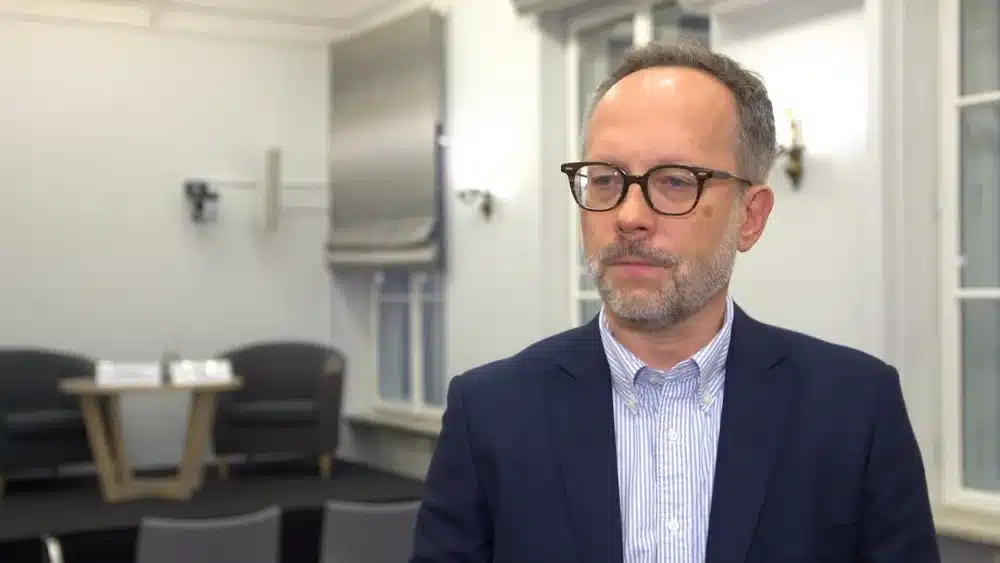The result of the presidential elections in the USA may have crucial significance for the war in Ukraine. Kamala Harris supports the continuation of military support for Ukraine and the initiation of negotiations with Moscow only with the full involvement of Kyiv. Donald Trump announces decisive actions to end the war, but it is unknown how it would happen and whether Ukraine and consequently Europe would bear the costs. His plans for NATO also raise many questions.
“The United States is a strategic ally for Poland. However, Trump has a more transactional approach, thus he is more interested in largely financial benefit, such as from the sale of American weapons. Nevertheless, the differences between the candidates concern global policy, European policy towards Russia, and the fate of NATO,” says dr hab. Tomasz Płudowski, prof. AEH, vice-dean of the Faculty of Social Sciences at the Academy of Economic and Humanistic Sciences, in a conversation with the Newseria Biznes agency.
As the European Union Institute for Security Studies points out in its analysis “Trump, Harris and Transatlantic uncertainties. What choices for Europe?”, the positions of Kamala Harris and Donald Trump radically differ on several key foreign policy issues, including the situation in the Middle East, Asia, and the war in Ukraine. Differences also relate to the North Atlantic Alliance. While Kamala Harris emphasizes that the USA will support European allies, the former president frequently threatened to withdraw from NATO and refuse aid to allies who do not invest at least 2% of GDP in armaments. During the campaign, Trump also spoke about the concept of “dormant NATO”, in which the USA reduces its involvement and withdraws some resources.
“I don’t think Trump would dissolve NATO, but he will indeed be somewhat unpredictable. He will want to exert significantly more influence. His negative attitude towards various European powers, such as Germany, is certainly visible,” says Tomasz Płudowski.
According to the expert, Trump may try to limit the position of Germany in NATO. He has frequently criticized some European countries, which could mean that if he were president, he could try to play different countries against each other. Moreover, he favors rather bilateral alliances between countries than multinational cooperation.
“Trump could try to exploit Poland. For example, we might hear that we would become a greater power, and ultimately he cares about outsmarting Germany. However, it is in Poland’s interest, in NATO’s interest, that we play together, i.e., that we maintain good relations with both Western Europe and the United States,” says prof. AEH.
Experts also expect that the US presidential election may have significant implications for the future of the war in Ukraine. Importantly, in this area, the differences between both candidates are most visible. Kamala Harris’s strategy includes continuing military support for Ukraine and starting negotiations with Moscow only with the full involvement of Kyiv and the participation of European allies. Without further support from Washington, it is unknown how long Ukraine will be able to resist Putin’s forces.
“Harris has clearly said that she sees this as an element of a global game between East and West, between NATO, the United States, and Russia. Therefore, she repeats, as political leaders in our region do, that Putin will not stop, and after Ukraine, other countries in the region will be next. Some draw comparisons to Hitler before the war, that a policy of appeasement will not end well, leading to new potential and actual conflicts,” says Dr. Tomasz Płudowski.
There are fears that Russia may attack an EU and NATO member country next to test Trump’s commitment and NATO’s mutual defense provisions.
The European Union Institute for Security Studies indicates that in the event of a possible victory, Trump’s policy towards the Russian war with Ukraine could take the form of “double pressure”. To push the parties to the negotiating table, he would warn Ukraine to stop military aid and threaten Russia with increased arms transfers to Ukraine. However, experts point out that this is just one of the scenarios, and Trump’s proposals remain unpredictable.
A hypothetical agreement between Ukraine and Russia would envisage ending the war in exchange for Ukraine’s neutrality, and Russia would retain factual control over the Ukrainian territories it occupies. Ukraine, supported by the majority of European NATO members, is unlikely to agree to territorial losses without strong security guarantees. Putin may decide to continue the war believing that the USA will not maintain financial and military support for Ukraine.
“Trump promises to end the war the next day, which is of course unrealistic, unless he has some agreement with Putin, which is not entirely ruled out. During the election campaign in the ’80s, Americans who were being held at the embassy in Tehran were literally released at the moment of Reagan’s inaugural speech. Therefore, it is expected that there was some agreement, perhaps not official but understood, as it couldn’t be a complete coincidence. It is also possible that the other side simply took advantage of the circumstances of American politics and played for one candidate. We may be dealing with something similar here,” the Americanist suggests.
